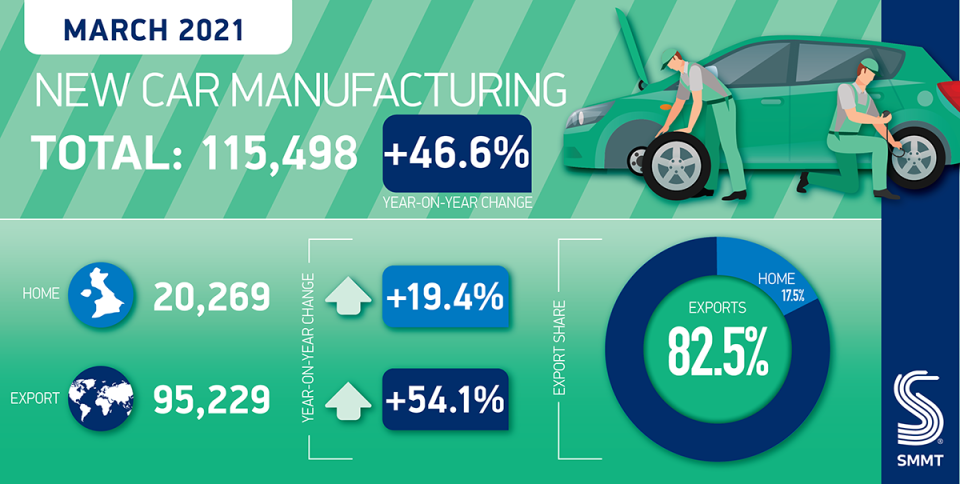UK car manufacturing on the rise but semiconductor shortage threatening recovery
UK car manufacturing is on the rise following a difficult year hit by coronavirus lockdowns.
However, industry body the Society of Motor Manufacturers and Traders (SMMT) has warned that a global semiconductor shortage threatens manufacturing recovery.
Figures from the SMMT show car production was up 46.6 per cent in March compared with the same month in 2020, with 115,498 cars produced. It marked the first increase in output in 18 months.

While the numbers are still 22.8 per cent down on the five-year March average, equivalent to losing about 34,000 units, it’s the first sign of positive news for the industry on the one-year anniversary of the first lockdown.
The increase was largely driven by exports, which made up 82.5 per cent of production at around 95,000 units, up 54.1 per cent. Output for the home market was up 19.4 per cent to around 20,000 units.
Mike Hawes, SMMT chief executive, said: “The first rise for UK car production since summer 2019 is a major step in the right direction but belies the underlying situation.
“With factories shut for much of March 2020, output was always going to be up but it remains below average, with some £11bn worth of production lost over the past year.
March UK car output grows 46.6% against Covid hit 2020 when pandemic forced factories to close.
Monthly performance down -22.8% on five-year March average and Q1 down -4.0% year-on-year.https://t.co/clHpzJzwgm pic.twitter.com/hoEZOz3kez
— SMMT (@SMMT) April 29, 2021
“Whilst the Covid situation is improving in the UK and in some major export markets, manufacturers are still struggling to manage residual issues, most notably the global semiconductor shortage.”
That latter point is becoming an increasing concern for car manufacturers, which rely on the chips that are also commonly used in smartphones and other modern technology.
This week, Jaguar Land Rover was forced to halt production at its Halewood and Castle Bromwich factories as it deals with the shortage.

 Yahoo Finance
Yahoo Finance 